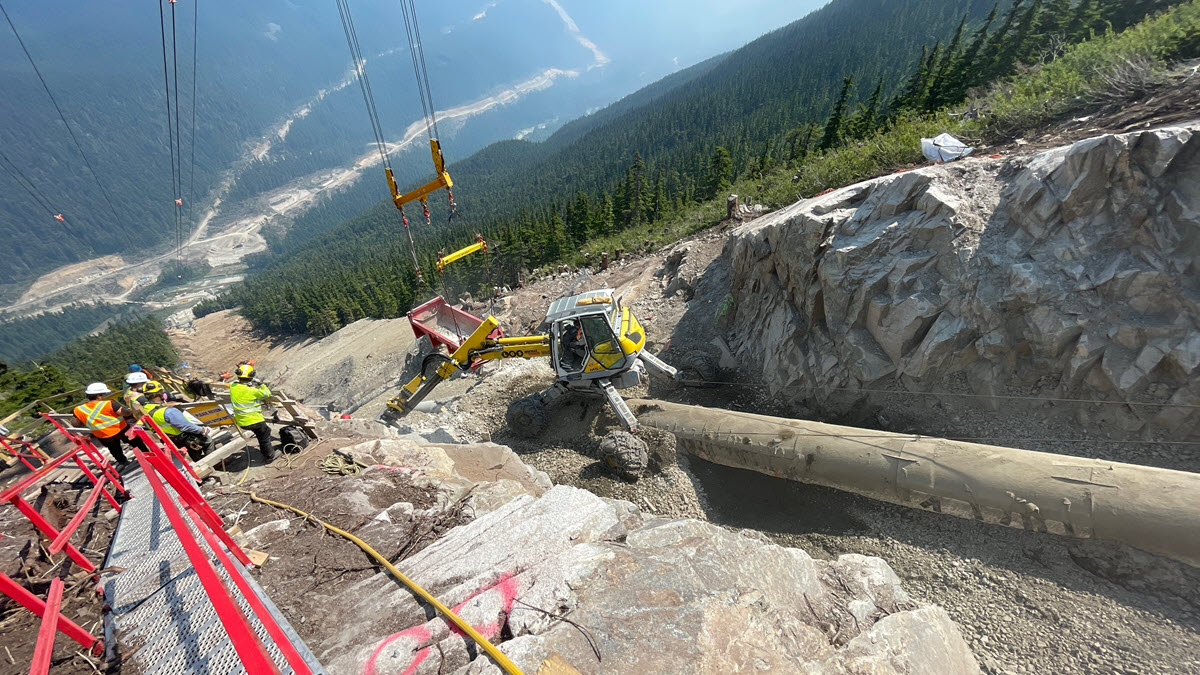TC Energy’s Coastal GasLink pipeline, which will supply natural gas to the Shell-led LNG Canada terminal, is almost 92 percent complete.
The 670 kilometers long pipeline will have the capacity to transport 2.1 billion cubic feet of natural gas per day (bcf/d) from Groundbirch, BC to Kitimat, in the first phase.
Coastal GasLink said in a construction update the pipeline has achieved 91.4 percent overall completion and it still expects to complete the project by the end of 2023.
“Our workforce of nearly 4,800 are focused on safely completing remaining critical items across the 670-kilometre project route this summer, while ensuring important environmental management measures are in place,” it said.
“With more than 630 km of pipe installed, crews are busy completing distinct work fronts such as water crossings and steep slopes. To date, more than 92 percent of all classified water crossings are complete, and steep slope areas such as Cable Crane Hill and the Raised Bore, continue to make significant strides forward,” Coastal GasLink said.
Coastal GasLink added that hydrotesting is either complete or underway in every section, a “critically important phase” of the project that ensures it can safely transition its infrastructure into operations.
The price tag of the giant pipeline has increased substantially over the years and TC Energy now estimates costs for the first phase of its pipeline to reach C$14.5 billion.
As per the LNG Canada plant in Kitimat, the project built by JGC Fluor is about 85 percent complete and recently completed LNG tank hydro testing at the project site in Kitimat, British Columbia.
Besides Shell, other partners in Canada’s first LNG export terminal include Malaysia’s Petronas, PetroChina, Japan’s Mitsubishi Corporation, and South Korea’s Kogas.
The first phase of the LNG Canada project includes building two liquefaction trains with a capacity of 14 mtpa in Kitimat.
Shell and its partners and are also evaluating the second phase of the project.

